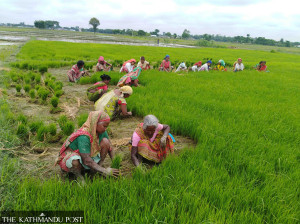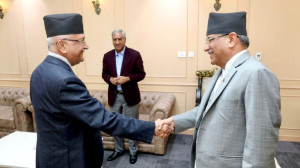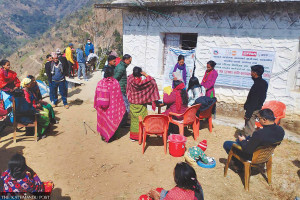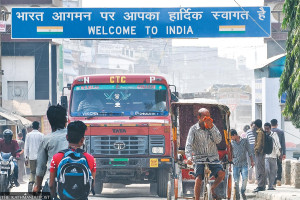 16.12°C Kathmandu
16.12°C KathmanduEditorial
The few above the law
There is a need to make the holders of highest offices in the land accountable for their decisions.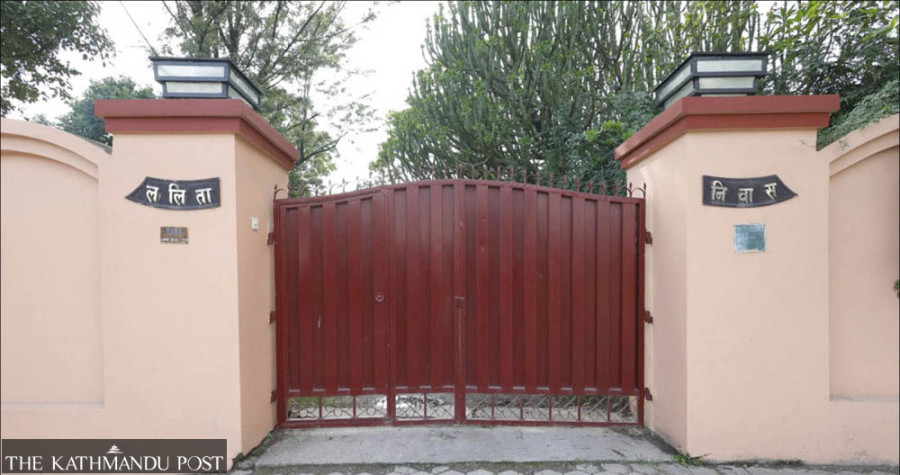
The Special Court verdict on Lalita Niwas land scam issued on Thursday has brought a vital question to the fore. As the court that mostly hears corruption-related issues handed down its judgement on the land grab scam, one aspect of the verdict was particularly concerning. The court sentenced civil servants and middlemen, among others involved in the land grab, with jail terms and fines. But then it acquitted politicians who had a direct hand in this case of transfer of public land into private hands. Experts in the field of anti-corruption as well as the investigators in the Lalita Niwas case remain unconvinced of the acquittals.
At first, the Commission for the Investigation of Abuse of Authority (CIAA) weakened the case against former prime ministers and ministers involved in making decisions to transfer government land in individuals’ names on the ground that the anti-graft body cannot investigate the Cabinet’s ‘policy decisions’. Then the bench acquitted the ministers who were charge-sheeted in the case, arguing that it would be unfair to implicate some while sparing other signatories in ‘policy decisions’ that were made collectively at Cabinet meetings.
The CIAA and the Special Court both shift the blame for the acquittal of politicians in major corruption cases to the CIAA Act that states that the constitutional body can't investigate a Cabinet’s ‘policy decisions’. But the law doesn’t define what decisions are policy decisions and what aren’t. This has made it easy for scammers to escape CIAA investigation. Even petty proposals are forwarded to the Cabinet, which can apparently make decisions on these proposals with zero accountability. This is not an isolated case where small fry have been prosecuted while the big fish were let go. Even in the past, politicians were acquitted while civil servants or law enforcement officials were convicted. Take the Sudan Scam. In its 2017 verdict, the Supreme Court convicted top police officials for embezzling huge sums from the state coffers but no politician was sentenced.
Experts and former bureaucrats have underscored the need to either remove the provision barring the constitutional body from investigating prime ministers and ministers in the name of ‘police decisions’ or at least clearly define policy decisions. They are bang on when they say having different sets of rules for people of different ranks is unacceptable, especially when their collective involvement in a corruption case is clearly established. A petition filed against the tendency of sparing politicians in serious corruption cases in the name of 'cabinet decisions' is sub judice in the Supreme Court. Similarly, a bill to amend the CIAA Act is under deliberation in the federal parliament. The time to act on it is now.
Rampant corruption in all three tiers of the government across the country has greatly disenchanted the people. More than that, repeated instances of giving special privilege to politicians in major corruption cases has helped whip up public anger. Correcting the provision that treats people differently in the name of 'policy decisions' can help douse the anger and restore some of the public’s eroding faith in the political class. Again, the bill to amend the CIAA Act is in the State Affairs Committee of the lower House. The lawmakers now have a chance to deal a decisive blow to the edifice of corruption. They should not hesitate.















